In an era marked by environmental concerns, economic uncertainties, and a growing desire for independence, the concept of living off the grid has gained significant traction. But what does it truly entail, and what are the essentials for embarking on this journey towards self-sufficiency?
In this comprehensive guide, we delve into the key components of living off the grid, addressing the fundamental question: “What do you need to live off the grid?” Whether you’re considering a complete break from conventional utilities or simply seeking to reduce your environmental footprint, understanding the essentials is crucial for success in this lifestyle choice.
Join us as we explore the practicalities, challenges, and rewards of living off the grid, and discover the essential elements that can empower you to embrace a more sustainable and independent way of life.
To live off the grid, you need land and a source of water, food, power and heating. Living off the grid is all about self-sufficiency where you rely on natural resources and creative solutions to meet your day-to-day needs.
Going off-grid means disconnecting from the municipal grid and producing your electricity, heating, and water, among other things. It is a way of living that requires commitment, dedication and a willingness to learn a wide range of skills. While it may not be for everyone, it can lead to a more sustainable and independent lifestyle, free from the constraints of modern-day conveniences.
In this article, we’ll explore the requirements and options available for living off the grid.

Credit: uk.jackery.com
What Do You Need to Live Off the Grid?
Water
Water is a fundamental requirement for off-grid living. Without access to public water sources, you need to find alternative ways of obtaining water. This could include digging a well, tapping into a natural spring, or collecting rainwater. It’s important to test the water source regularly and ensure it’s safe for consumption. Once you have a reliable water source, it’s essential to learn how to filter and purify the water to make it safe for drinking. Boiling, filtration, and chemical treatment are common methods of water purification. Additionally, it’s important to conserve water to ensure a sustainable supply.
Shelter
Off-grid living requires a reliable and comfortable shelter that provides protection from the elements. There are many options for off-grid shelters, including tiny homes, yurts, cabins, and Earthships. It’s important to consider factors such as location, materials, and solar orientation when building an off-grid shelter. Insulation and ventilation are crucial elements to consider when building an off-grid shelter. Insulation helps to keep the interior of the shelter warm during cold weather, while ventilation helps to circulate fresh air and prevent mold growth. Building an off-grid shelter can be a challenging but rewarding project that provides a sense of self-sufficiency and accomplishment.
Food
Being self-sufficient in food is a key aspect of off-grid living. This means growing your own food, foraging, hunting, and fishing. Permaculture, hydroponics, and aquaponics are popular methods of growing food off-grid. It’s important to choose crops that are well-suited to the local climate and soil conditions to ensure a successful harvest. Foraging for wild edibles such as berries, nuts, and mushrooms can provide a valuable source of nutrition.
Hunting and fishing are other options for sourcing protein. It’s important to understand local regulations and safety guidelines when hunting and fishing.
Energy Generating
energy off-grid is essential for powering lights, appliances, and other devices. Solar panels, wind turbines, and hydro turbines are popular methods of generating energy off-grid. It’s important to choose the right energy source for your needs based on factors such as location, weather patterns, and energy demand. Storing and managing energy is also crucial for optimal energy usage. Batteries, generators, and inverters are common tools for storing and managing energy. Off-grid living requires careful energy management to ensure a reliable supply of power.
Waste Management
Waste management is another crucial aspect of off-grid living. It’s important to reduce waste by composting, recycling, and repurposing materials. Burning, burying, or hauling waste are common methods of disposing of waste in off-grid living. Composting is an effective way to reduce food waste and create nutrient-rich soil for gardening. Recycling and repurposing materials helps to reduce the amount of waste that needs to be disposed of.
It’s important to be mindful of the environmental impact of waste disposal and to follow local regulations and guidelines.
Communication
Living off the grid can be isolating, so it’s important to have reliable communication methods. This could include satellite phones, ham radios, or the internet via satellite. It’s important to choose a communication method that works in your location and to have a backup plan in case of emergencies.
Location And Land Considerations
Choosing The Right Location
When it comes to living off the grid, choosing the right location is a crucial factor to consider. Here’s what you need to take into account:
- Accessibility: Depending on how remote you want to be, access to nearby towns or cities for supplies and healthcare should be considered.
- Climate: Your location’s climate can significantly impact your survival chances. Consider the temperature, precipitation levels, and natural disasters when choosing your off-grid location.
- Natural resources: An off-grid lifestyle largely relies on natural resources such as water, food, and energy. Evaluate the availability of these resources in the area you’re considering.
- Community: Being part of an off-grid community can offer several benefits, including shared knowledge, resources and help when you need it.
Evaluating The Land’S Suitability
Now that you’ve chosen a location, the next step is to evaluate the land’s suitability. Here are some critical factors to consider:
- Soil quality and type: The type of soil and its quality can influence the ability to grow crops.
- Water sources: Aside from rainfall, a reliable source of water is vital. Constant access to clean water is crucial for survival.
- Terrain: Consider the topography of the land. Areas with steep slopes can be suitable for hydroelectric power, while flat land offers more space for agriculture.
- Wildlife: Identifying the wildlife present in the area is essential, both for hunting and mitigating the risk of dangerous animals.
Legal Considerations
Before purchasing land for off-grid living, be sure to research and understand any legal considerations that may impact you. Here are some critical legal factors to consider:
- Zoning laws: Depending on the location, zoning laws can regulate the type of buildings and structures you can build.
- Building codes: Depending on the local laws, certain structures may need permits and must comply with building codes.
- Land use regulations: Some areas may have restrictions on what you can do with the land. Research the property’s permitted uses and restrictions before making a purchase.
- Property taxes: Even if you’re off-grid, you’ll likely still be responsible for paying property taxes.
Financial Considerations
Finally, it’s crucial to evaluate the financial implications of deciding to live off the grid. Here are some financial factors to consider:
- Initial cost: The cost of purchasing land and building a sustainable shelter may be high. Be sure to budget accordingly.
- Ongoing expenses: Living off-grid still requires money for ongoing expenses such as food, healthcare, and utilities (if you choose to have them).
- Opportunity cost: Consider the potential income you may be giving up if you’re no longer working. Evaluate if you’ll still be able to generate income through remote work or a home business.
- Return on investment: If you’re looking to make an off-grid lifestyle sustainable in the long run, consider the potential return on investment for any sustainable systems you install, such as solar panels or water systems.
Living off the grid can be an exciting and rewarding lifestyle choice, but it’s essential to approach it thoughtfully. Consider these factors before taking the plunge into off-grid living.
Energy And Power Sources
Living off the grid can seem like a daunting task, but with careful planning, it can be a rewarding experience. One of the most crucial aspects of off-grid living is having reliable energy and power sources. Here are the key points to consider when choosing your energy and power sources for off-grid living.
Solar Panels
- Solar panels are an excellent energy source for off-grid living
- They generate electricity using sunlight and require minimal maintenance
- You need to determine the number of solar panels you require depending on your energy consumption
- Solar panels are cost-effective in the long run, as you can reduce your energy costs and even generate surplus power to sell back to the grid
Wind Turbines
- Wind turbines are an effective way to harness wind energy and generate electricity
- They work well in areas with high average wind speeds
- You need to ensure the wind turbine is installed at the right height to maximize energy output
- Wind turbines are more expensive than solar panels, but they can provide a more consistent source of power in windy areas
Generator
- A generator is an excellent backup source of power in case of emergencies or when other sources are not working
- It runs on fuel and is relatively easy to maintain
- Generators can be noisy and produce fumes, so they need to be placed in a well-ventilated area to avoid carbon monoxide poisoning
- You need to ensure that you have enough fuel stored to last for extended periods
Batteries
- Batteries are essential for storing excess energy from solar panels or wind turbines
- They provide power when other sources are not producing enough energy
- You need to determine how many batteries you require depending on your energy needs
- Batteries are expensive, so it’s essential to choose high-quality and long-lasting ones to avoid repeated replacement costs
Alternative Energy Sources
- There are several alternative energy sources to consider, including hydropower, geothermal energy, and biomass
- Hydropower uses water to generate electricity and works well in areas with running water sources
- Geothermal energy uses heat from the earth’s core to generate power and works well in areas with hot springs or geysers
- Biomass can be used to produce heat energy by burning organic material such as wood, agricultural waste, or animal waste
Choosing the right energy and power sources for off-grid living is crucial to ensure that you have access to reliable and sustainable sources of energy. By taking the time to evaluate your energy needs and considering the various options available, you can design an energy system that will serve your needs for years to come.
Water Acquisition And Management
Living off the grid is all about sustainability and self-reliance. One of the essential aspects of this lifestyle is water acquisition and management. Without a reliable source of fresh water, off-grid living can quickly become an impossible task. In this section, we’ll explore the key techniques that will help you collect, purify, and conserve water.
Let’s dive in!
Collecting Rainwater:
- Rainwater harvesting is a critical part of off-grid living. Here are some key points to keep in mind:
- Install a rain barrel or cistern under your roof’s downspouts to collect the water.
- Ensure the rainwater collection system is made of food-grade, uv-stabilized polyethylene.
- Always install a screen on top of the cistern or rain barrel to keep debris and insects out.
- Store the water in a cool, dark place to prevent bacteria growth.
Digging Wells:
- Digging a well is an excellent way to access natural groundwater. Here’s what you need to know:
- Conduct a geological survey of your land to determine the best location for your well.
- Obtain a drilling permit from your local government and hire a professional drilling team.
- Install a hand pump or solar-powered pump to access the water.
- Regularly test the water quality to ensure it’s safe for drinking.
Filtering And Purifying Water:
- Even if you collect water from a reliable source, it’s essential to filter and purify it. Here’s how:
- Use a ceramic or activated carbon filter to remove dirt and debris.
- Boil the water for at least 10 minutes to kill bacteria and parasites.
- Use uv water sterilizers to kill viruses and bacteria.
- Install a reverse osmosis system to filter out dissolved solids and heavy metals.
Water Conservation Techniques:
- Conserving water is crucial for off-grid living. Here are some tips to save water:
- Install low-flow showerheads and faucets to reduce water consumption.
- Mulch your plants and trees to retain moisture in the soil.
- Use a composting toilet to reduce water waste.
- Repair any leaks in water pipes and faucets promptly.
Living off the grid requires dedication and effort, but it’s a satisfying and fulfilling way of life. By following these water acquisition, purification, and conservation techniques, you’ll be well on your way to self-sufficiency.
Shelter And Habitability
Types Of Off-Grid Shelters
When it comes to living off the grid, shelter is one of the most important aspects to consider. Here are the different types of off-grid shelters you might want to consider:
- Yurts: A portable, round tent-like structure made of fabric or canvas walls and a wooden or metal frame.
- Tiny homes: Small, compact houses typically less than 500 square feet in size and often built on trailers for mobility.
- Shipping containers: Repurposed metal containers that are affordable, modular, and sturdy.
- Earthships: Energy-efficient and self-sustaining homes built from recycled materials and designed to blend in with their surroundings.
- Log cabins: Rustic, wooden structures made from stacked logs and built to withstand harsh climates.
Building An Eco-Friendly Home
After you’ve chosen the type of shelter you want, the next step is to consider building a home that can function off the grid. Here are some eco-friendly building options:
- Solar panels: An alternative energy source used for electricity and hot water.
- Wind turbines: Convert wind energy into electricity to power your home.
- Green roofs: A layer of vegetation grown on the rooftop that can serve as natural insulation and drainage.
- Rainwater harvesting: Collect and store rainwater for household use.
- Composting toilets: An efficient and environmentally friendly way to dispose of human waste.
Heating And Cooling Options
While your shelter should naturally provide insulation, it’s important to consider heating and cooling options to maintain a comfortable living space year-round. Here are some options to consider:
- Wood stoves: Burn wood to provide warmth and cooking heat.
- Propane heaters: Heats a small to medium-sized home quickly and efficiently with propane gas.
- Geothermal heating and cooling: A method that uses energy from the earth to provide heating and cooling.
Insulation
Insulation is critical in maintaining a comfortable and energy-efficient living space. Here are some insulation options to consider:
- Spray foam insulation: Made of polyurethane and sprayed onto surfaces.
- Mineral wool insulation: Made by melting rock or glass and spinning it into fibers.
- Cellulose insulation: Made of recycled materials and sprayed onto surfaces.
- Straw bale insulation: Made from tightly-packed straw bales, which provide excellent insulation.
Emergency Preparedness And Safety Measures
Living off the grid means being prepared for any situation, especially during emergencies. Here are some safety measures to consider:
- Fire safety: Install smoke detectors and fire extinguishers in your home.
- First aid kits: A must-have for any household.
- Evacuation plans: Create a plan in case of emergency evacuation.
- Backup power: Have a backup power source in case of power outages.
- Security: Consider security measures such as cameras, locks, and alarms.
As you can see, there’s a lot to consider when it comes to living off the grid. However, with the right planning, preparation, and considerations, it can be a fulfilling and sustainable lifestyle choice.
Food And Livelihood
Living off the grid means being self-sufficient and providing for oneself. Food is a necessity, and growing, raising, hunting, and fishing it can be a fulfilling way of life. Here are some ways to achieve self-sustenance when it comes to food and livelihood:
Growing A Vegetable And Fruit Garden
Growing a vegetable and fruit garden is a great way to provide fresh produce for yourself and your family. Here are some tips:
- Choose a sunny location with well-draining soil.
- Start small and expand as you learn.
- Research what grows well in your area.
- Use organic methods to fertilize and control pests.
- Harvest regularly to encourage more growth.
Raising Livestock For Meat And Dairy
Raising livestock for meat and dairy requires more work, but it can be worth it for those who want to be completely self-sufficient. Here are some things to consider:
- Start small and choose an animal you feel comfortable with, such as chickens.
- Make sure you have enough space and resources to care for them.
- Research feed, housing, and medical needs.
- Consider the time and cost of processing the meat or dairy.
- Be prepared for the emotional aspect of raising and consuming animals.
Fishing And Hunting
For those who live near water or in wooded areas, fishing and hunting can be an excellent source of food. Here are some tips:
- Research local laws and regulations regarding fishing and hunting.
- Invest in quality gear and equipment.
- Learn how to identify and track wildlife.
- Be responsible and respectful when hunting or fishing.
- Practice proper cleaning and cooking techniques.
Food Preservation Techniques
When you have a bountiful harvest or catch, preserving the excess for future use is essential. Here are some popular food preservation techniques:
- Canning: Using jars and airtight lids to preserve food.
- Dehydrating: Using heat to remove moisture from food.
- Freezing: Storing food in a freezer to maintain freshness.
- Smoking: Using smoke to preserve and flavor meat and fish.
- Pickling: Using vinegar and spices to preserve food.
Income Generation Strategies
Living off the grid also involves generating income to sustain the lifestyle. Here are some potential income-generators:
- Selling excess produce, meat, or dairy products.
- Offering classes or workshops on self-sustenance techniques.
- Creating handmade crafts to sell online or at local markets.
- Providing services such as carpentry, gardening, or pet-sitting.
- Hosting guests on a farm-stay or glamping property.
Living off the grid is a challenging but rewarding lifestyle choice that requires self-sufficiency in all aspects of life. With dedication and hard work, it is possible to achieve complete autonomy, from producing your food to generating income.
Miscellaneous
Living off the grid requires extensive preparations, and one of the crucial aspects is ensuring you have all the necessary miscellaneous items. These miscellaneous items can range from waste management tools to medical supplies, and even communication equipment to stay in touch with the outside world.
Here’s what you need:
Composting And Waste Management
- Composting toilets: These toilets do not require water for flushing, and their waste decomposes into compost-like material.
- Portable toilets: They’re an excellent option for those who don’t want to invest in a permanent composting toilet and can be emptied in a compost bin.
- Garbage disposal: Consider getting a garbage disposal system to minimize the need to dispose of waste off-site.
Tools And Equipment
- Handheld chainsaw: Useful for cutting and clearing any excess vegetation.
- Axes: A great tool for chopping wood for fuel.
- Shovels: Essential for digging and landscaping work when planting crops or trees.
- Solar-powered equipment: This includes solar panels, generators and even solar cookers to help reduce your reliance on the grid.
Medical Supplies
- First-aid kit: A must-have in case of any emergency.
- Prescription medicines: Make sure you have an adequate supply of any long-term medication or critical medical supplies.
- Essential oils: Natural remedies such as tea tree oil, lavender oil, and peppermint oil can provide relief for various minor issues.
Communication And Internet Access
- Two-way radio: A reliable source of communication during emergencies and also for maintaining communication with other off-the-grid communities.
- Internet access: Satellite or wireless internet is necessary for online research or emergency calls.
Community Living And Support Networks
- Join local off-the-grid communities or organizations to socialize and share information.
- Consider alternative ways to earn a living if you’re planning on living off the grid long-term.
By ensuring you have all these miscellaneous items, you’ll be well on your way to living off the grid comfortably and safely.
Frequently Asked Questions On What Do You Need To Live Off The Grid?
What Is Living Off The Grid?
Living off the grid means relying entirely on your own resources, such as solar power and rainwater collection, and not being connected to mainstream utilities.
What Are The Advantages Of Living Off The Grid?
Living off the grid can be environmentally friendly, save money in the long term, and allow for a simpler, self-sufficient lifestyle.
Is It Legal To Live Off The Grid?
In most countries, it is legal to live off the grid on your own property as long as you comply with building and safety codes.
What Are The Challenges Of Living Off The Grid?
Challenges can include initial setup costs, maintenance and troubleshooting of off-grid systems, and potential social isolation.
Do I Need Special Skills To Live Off The Grid?
Some basic do-it-yourself skills, such as basic plumbing and wiring, can be helpful, but it is not necessary to be an expert in order to live off the grid. However, learning about off-grid systems and resources is important.
Conclusion
Living off the grid is a great way to reduce one’s impact on the environment. It allows individuals to become self-sufficient and independent, while also promoting a sense of responsibility towards nature. To live off the grid, one needs to have a clear plan and invest in the right equipment, including solar panels, generators, water filtration systems, and composting toilets, to name a few.
A strong community network can also be beneficial in sharing resources and knowledge. It takes a lot of hard work and dedication to live off the grid, but the rewards can be immense. The sense of achievement that comes from being able to live sustainably and independently is priceless.
With the right mindset and resources, anyone can successfully live off the grid and reap the benefits for themselves and the environment. So, what are you waiting for? Start planning and dreaming of your off-grid living today.

“My name is Leo Jacob, and I hold a Bachelor of Science degree with Honors in Applied Environmental Science and Sustainability from the University of the West of Scotland. Since childhood, I’ve been passionate about living an eco-friendly life. After completing my studies, I dedicated myself to finding simple ways to lead a more environmentally conscious lifestyle. I launched ecolifely.com to share my educational background and practical experiences with everyone, hoping to inspire others to join me in creating a greener, more sustainable world.”

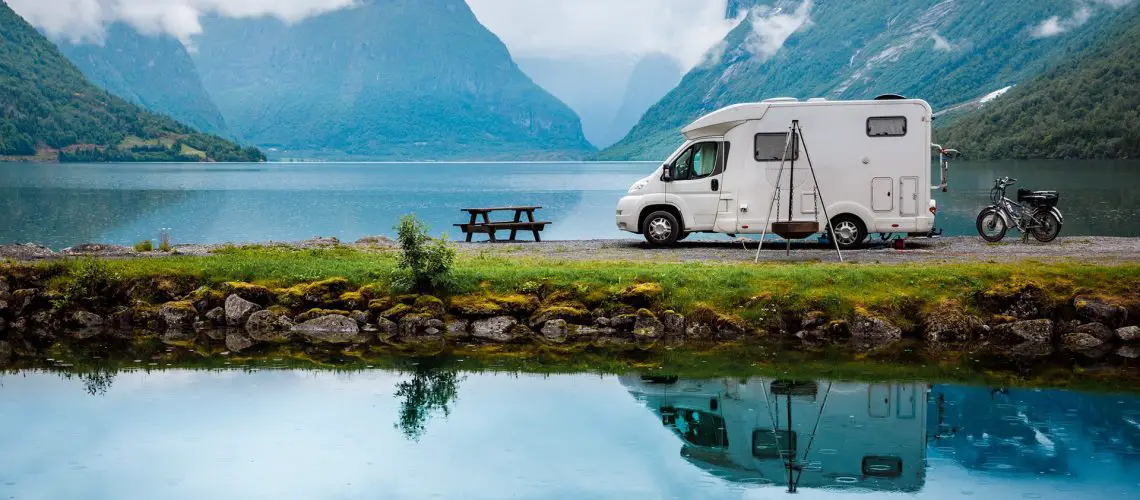

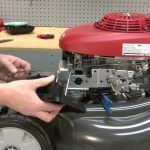

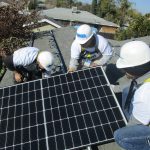
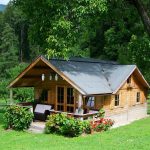


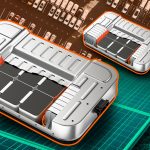
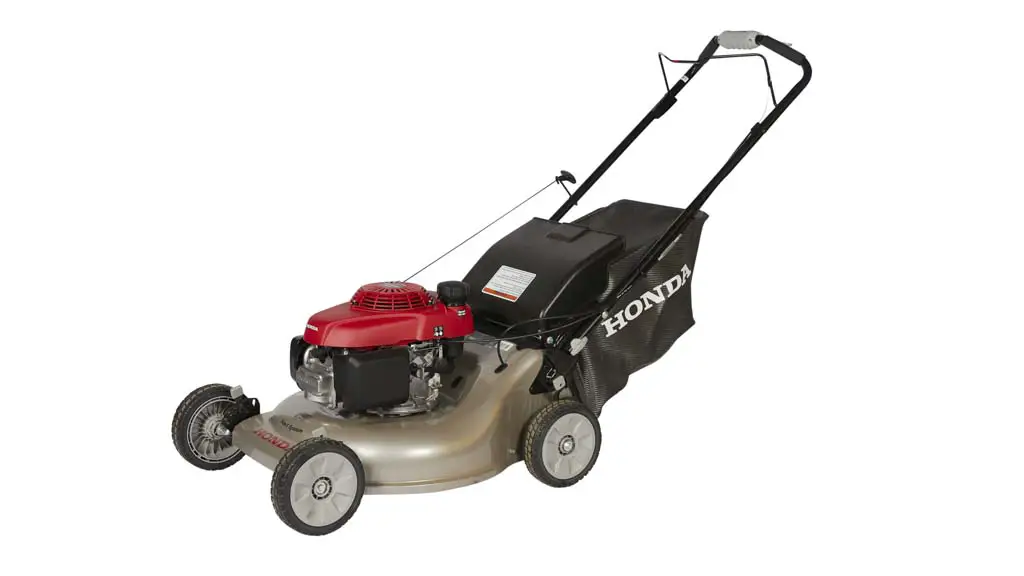


Leave a Reply